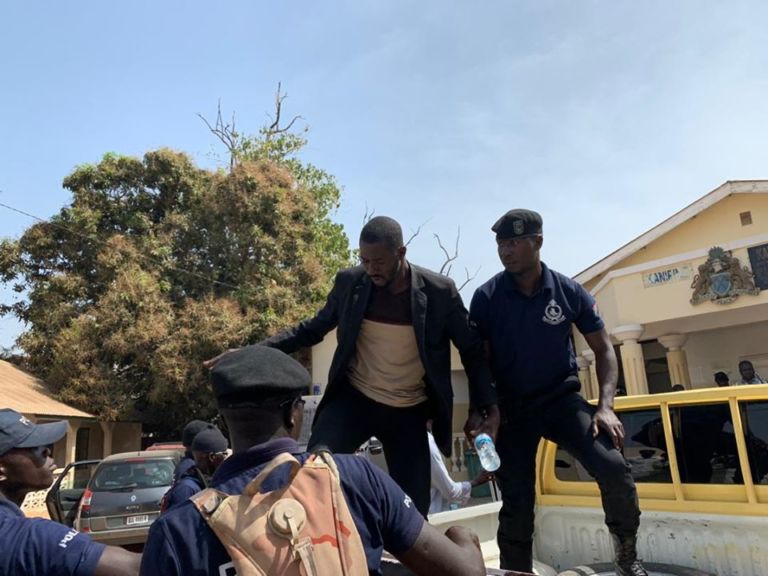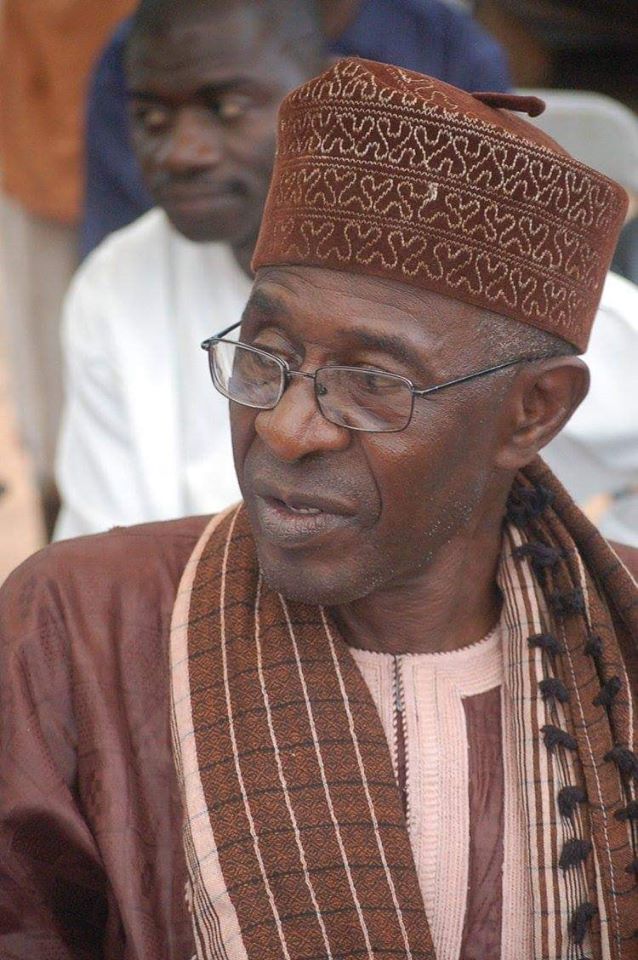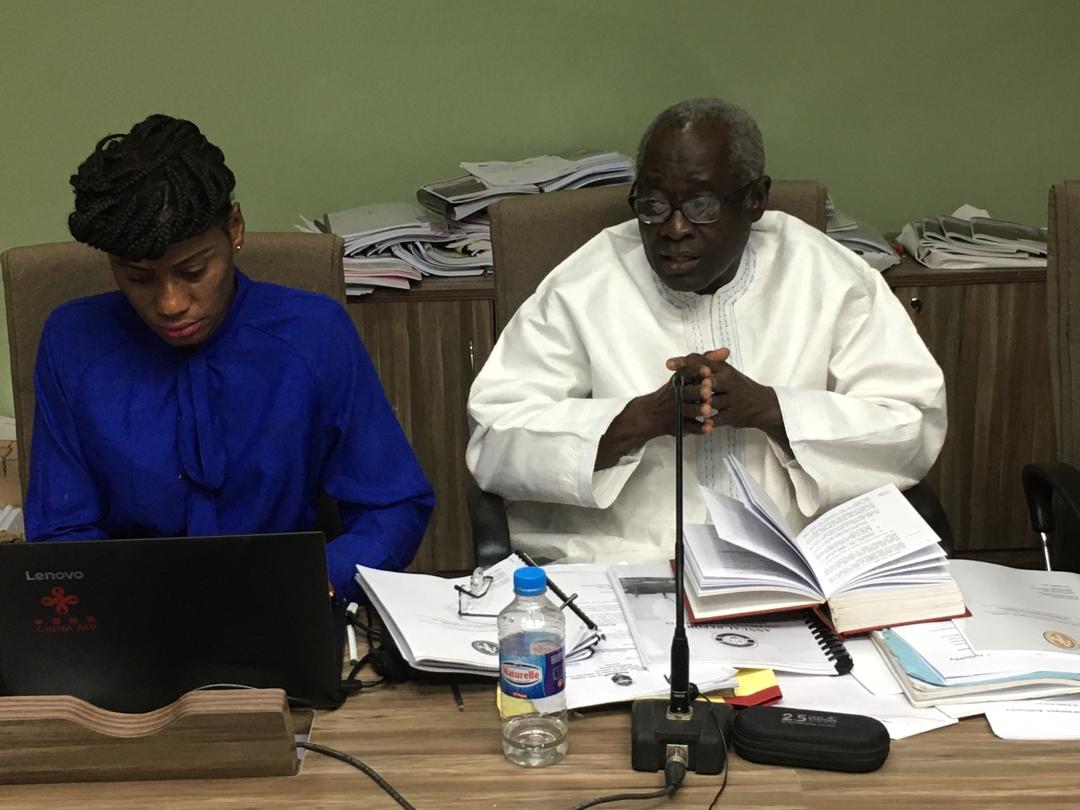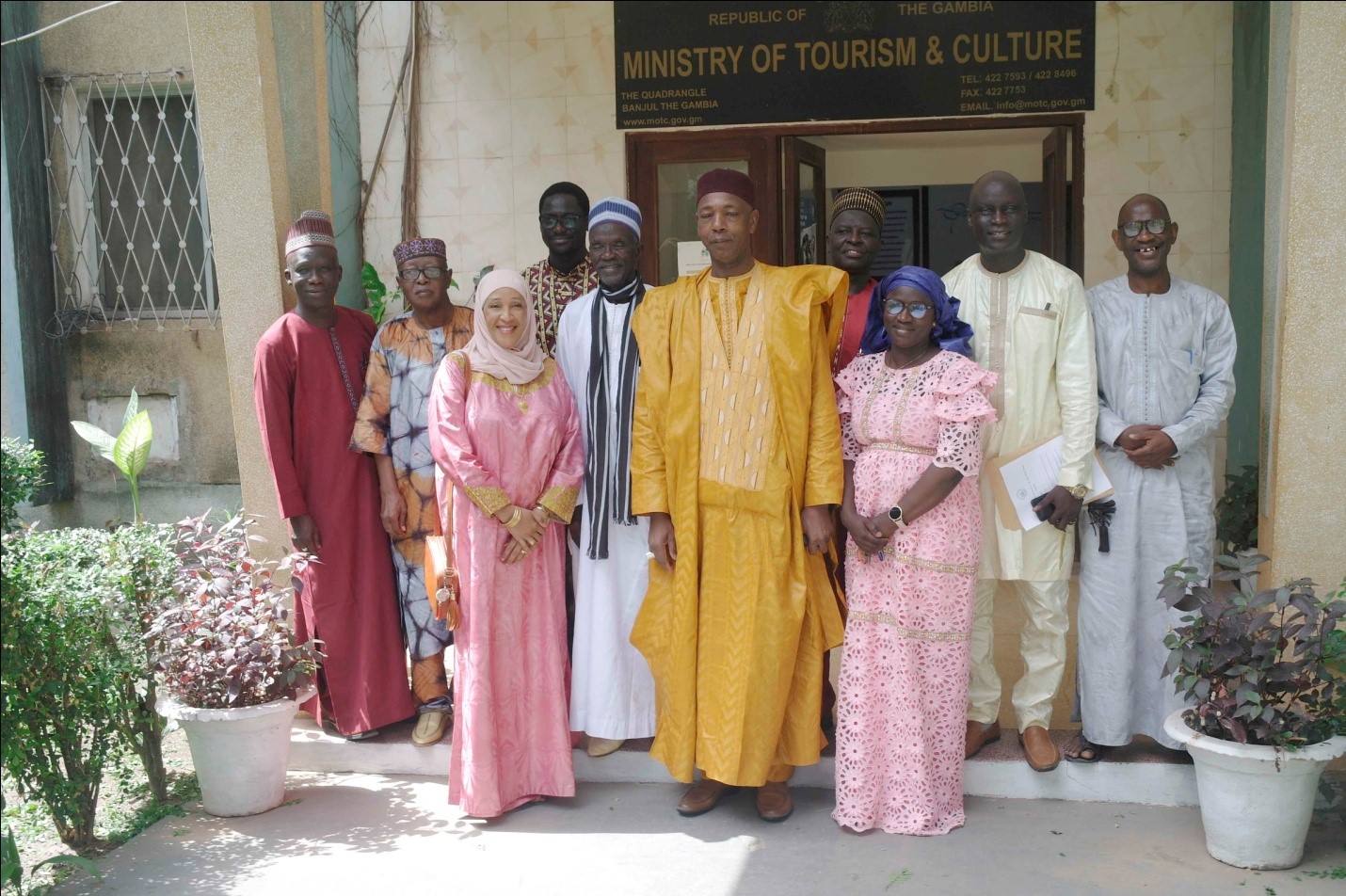Kanifing Magistrates’ Court presided over by Magistrate Pierrette Mendy Sarr has transferred a trial case involving executive of Operation Three Years Jotna to High Court Special Criminal Division after ruling not having the jurisdiction to hear the case.
The police are pressing criminal charges against Abdou Njie, the (Chairman of the movement), Ebrima Katim Jarju, Sheriffo Sonko (Executive member), Hagie Suwaneh, the (spokesperson) of the Movement, Fanta Mballow, Karim Touray, Yankuba Darboe (Executive Member) and Muctarr Ceesay.
The accused persons are charged with three counts. Count one (1) Unlawful Assembly, contrary to section 70 of the Criminal Code, cap 10:01 volume 3.Count two (2): Rioting after proclamation, contrary to section 74 of the criminal code, cap 10:01 volume 3 laws of the Gambia 2009. Count three 3: Rioters demolishing structures, contrary to section 76 of criminal code, cap 10:01 volume 3 law of the Gambia.
On the charge of unlawful Assembly, the accused persons are alleged to have jointly and unlawful taken part in an unlawful Assembly on the 26th January 2020.
On the second charge, the accused persons are alleged to have disregarded and continued with their protest after the expiration of the proclamation made by Deputy Superintendent Alagie Jallow in the name of the President of the republic to disperse peacefully.
On the 3rd Count 3, they are alleged to have demolished the GTTI’s students’ waiting shed by setting it on fire.
When the case was mentioned by the presiding Magistrate P. Sarr, Superintendent Mballow announced representing the IGP alongside Assistant superintendent Prince Almameh James Manga while Lamin S. Camara announced representing the 3 Jotna movements alongside Lamin J. Darboe, Lamin L. Darboe, Borry S. Touray, Abdoulie AMO. Badjie, Ebrima K. Jallow and Abdoulie Jarju.
In his submission prosecuting Officer M.D. Mballow submitted that counts 1 and 2 attract an imprisonment of 1 and 5 years respectively while count 3 attracts life imprisonment.
“Our laws do not confer this court with the power to try offences that attract life imprisonment,” he said, relying on Legal Notice number 3 of 2009 which provided for a Special Criminal Division of the High Court to try offences such as count 3 because it attracts the sentence of life imprisonment. Mballow argued that the legal notice forms part of the laws of the Gambia in reliant to section 7 of the Constitution.
“Legal Notice number 3 of 2009 takes away the jurisdiction of this honourable court to try count 3 (rioters demolishing structures),” Mballow said.
He said since the legal notice oust the court’s power to try the offence it should transfer the matter to the High Court and remand the accused persons pending their arraignment before the High Court.
According to him, the Legal Notice was enacted by the Chief Justice in 2009 under the powers conferred on him by section 143 of the Constitution.
However, he urged the court not to grant the accused persons bail because it will be contrary to section 99 (1) of the Criminal Code. He said section 99 (1) of the Code provides bail for all offences except those that attract death and life imprisonment sentences.
Lawyer Lamin S. Camara, the lead defence counsel started his submission with the following statements: “I like the argument of my learned friend. Yes, the court lacks the jurisdiction to hear the case. So why do you bring us here? I applaud the argument of my learned friend but I bet to disagree with him.”
“This court has the jurisdiction to try this case. This court has all the powers under section 5 (2) of the Criminal Procedure Code (CPC) (powers of the subordinate courts),” he told the court.
He pointed out section 5 (2) of the CPC provides that the court can sentence any offence authorised by law.
Camara told the court that Legal Notice number 3 of 2009 is not a law but a practice directive.
He further argued that the legal notice is not an Act of the National, not a rule and not a regulation but a practice directive creating a Division of a court.
“The legal notice does not oust the court’s jurisdiction to try the offences. The intent of the practice directive (Legal Notice) is contained in section 1. It provides ‘in the interest of effective case management and expeditious disposition of cases relating capital offences,” Camara said.
He also pointed out that the legal notice does not create a court instead it created a Special Division of a court, therefore, it cannot take away jurisdiction. Lawyer Camara argued that the legal notice provided for capital offences.
“Capital offences attract death and not life imprisonment,” Camara told the court.
According to him, the court has the jurisdiction to grant the accused person bail on all the 3 counts even though the 3rd count attracts life imprisonment relying on section 29 of the Criminal Code, pointing that said the discretion of the court to hand down judgment prescribed by law is not fettered.
He added: “Sentence to life imprisonment is not mandatory under our laws, unlike treason which attracts death. The court can reduce sentences including life imprisonment sentences.
He told the court that section 208 A of the CPC does not make it mandatory for the court to transfer the matter to the high court. He said the said section has the word “may” which means it is not mandatory to transfer matters adding that the court has the jurisdiction to try the case.
Lawyer Camara submitted “The provision is inapplicable here because the court has the jurisdiction to try this case (and the charges).
He reiterated that the practice directive (Legal Notice) is not a law; not an Act of the National Assembly, not a rule and not a regulation.
“It (Legal Notice) does not create a court. It creates a Division,” Camara said.
He added: “The jurisdiction of the court can only be ousted by statute and not directives.”
He concluded saying “your lordship has the jurisdiction to try this case and you have the jurisdiction to grant bail.”
Mballow in his reply on points of law said section 5 of the CPC provides that the court shall not derogate from the law that confers jurisdiction to another court.
He said Legal Notice number 3 of 2009 is a law envisaged and recognised by section 7 of the Constitution. He said section 27 of the CC deals with punishment and it has no bearing in the argument.
“This court cannot deal with an offence that it does not have jurisdiction to try,” he said.
He added: “capital offence does not exclude offences that attract life imprisonment. Capital offence includes life imprisonment.”
Presiding Magistrate Sarr of the Kanifing Magistrate’s Court made this ruling following an intense argument between the prosecuting officer and the defence lawyer.
Magistrate Sarr ruled that the Legal Notice is a law and it has ousted the jurisdiction of the court to try the case. She said the Legal Notice is a subsidiary legislation and therefore section 7 of the Constitution provides that subsidiary legislation forms part of the laws of the Gambia. She said she lacks the jurisdiction to entertain the matter.
She transferred the matter to the high court in reliant on section 61 of the Criminal Code. She also relied on section 208A to remand the accused persons to Mile II pending the special criminal court hearing.




